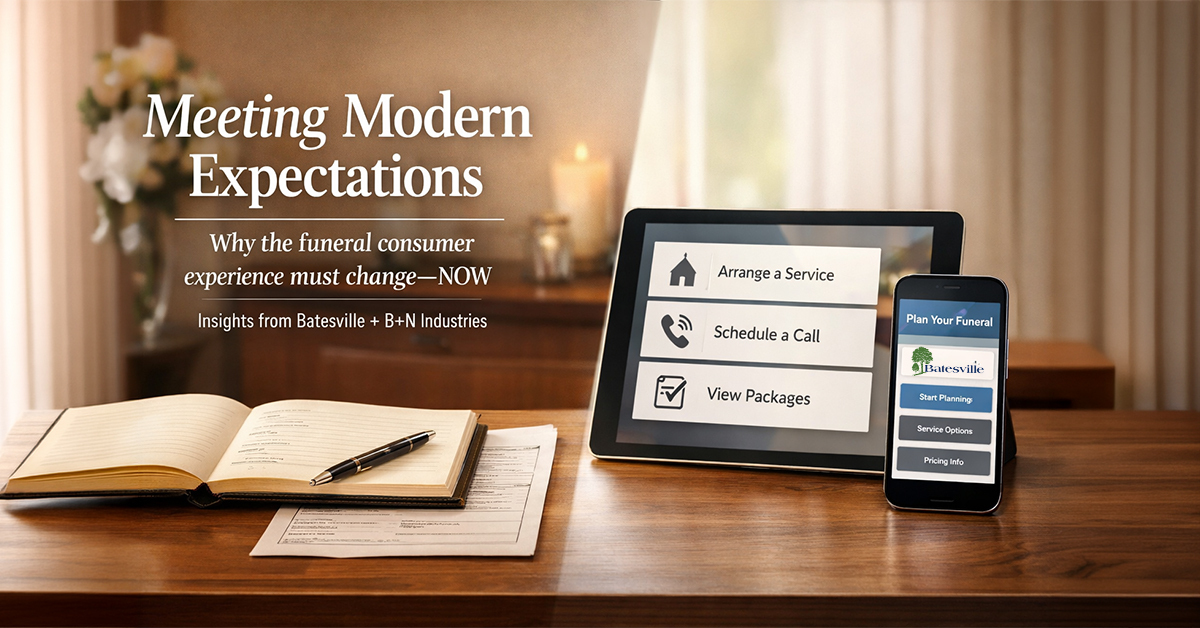Nearly 600 Funeral Director Volunteers Mobilized for COVID-19 Relief
Funeral directors, apprentices, and mortuary students across the country have mobilized in an unprecedented effort to help their colleagues and provide relief to funeral homes overwhelmed by coronavirus-related deaths. In April, the National Funeral Directors Association (NFDA) put out a call for volunteers who can travel to cities hardest-hit by the pandemic to assist with efforts to safely and respectfully bury the dead.
On May 1, 2020, the NFDA reported that nearly 900 funeral directors, apprentices, and students “stepped forth to volunteer” as part of the organization’s initiative. Of these, nearly 600 were able to serve in New York, New Jersey, Michigan, North Carolina, and Washington, D.C.
Scrambling to meet the sudden demand created by the coronavirus deaths, funeral homes struggled to do their jobs at an accelerated pace while protecting their own workforce from infection. The sharp increase in deaths meant more people and vehicles are needed to transport the deceased to funeral homes and burials have to be sped up, all while enforcing public health and social distancing regulations.
With double or even triple the normal weekly death rate, funeral directors faced a monumental challenge in fulfilling their traditional role of helping families grieve. In Brooklyn, the historic Green-Wood Cemetery’s crematory was taking in 15 to 20 bodies per day, twice the usual rate.
Funeral director volunteers mobilize to assist colleagues
The NFDA continues to work closely with federal, state, and local agencies to coordinate a response and deploy volunteers. Before they could send out-of-state volunteers to New York, though, the NFDA requested an executive order granting “license reciprocity” to enable funeral directors licensed elsewhere to work in New York State, which Andrew Cuomo signed on April 9.
Over 500 volunteers were deployed to New York funeral homes, the New York City Office of Emergency Management, and emergency operations in Michigan, North Carolina, and New Jersey. Volunteers are providing much-needed relief to beleaguered coroners and funeral home staff by assisting with retrieval and processing, preparing bodies, and communicating with families. Hundreds more volunteers from as far away as Sacramento are signed up and ready for deployment.
The project, funded by the Funeral Service Foundation (FSF) and its COVID-19 Crisis Response Fund, covers volunteer expenses and lets local agencies guide the deployment process as needed. To date, the FSF has allocated close to $200,000 for the effort.
When Hurricane Katrina devastated the Gulf Coast in 2005, the NFDA put out a similar call for volunteers to support funeral homes in Southern states.
“This speaks to the kindness and generosity of funeral professionals,” said NFDA Senior Vice President of Member Relations Anna Bernfeld in response to the overwhelming interest. Sacramento funeral services student Ally Pawelczyk braved her fear of the virus and decided to volunteer as soon as she heard about the need. “This is what I’m meant to do,” she told the Sacramento Bee.
Relieving overloaded crematories
Other funeral directors created their own initiatives to relieve their colleagues in the areas hardest hit by COVID-19 deaths. Dave Penepent, a funeral director and associate professor at SUNY Canton, started “Hands with a Heart” with four of his students to relieve the pressure on overburdened New York City crematories. In a few weeks, they transported hundreds of bodies to out-of-area crematories, some as far as Pennsylvania and Vermont.
With 70% of New York State’s close to 15,000 coronavirus deaths centered in New York City, the city’s four crematories were unable to keep pace with demand for cremations. “[Penepent] came out of nowhere to save us,” said a Queens funeral home owner. The tiny grassroots project received funding from the New York State Funeral Directors Association, Metropolitan Funeral Directors Association, and private donors.
Professor Penepent has worked through disaster before. When an airplane crashed near his Illinois town in 1994, killing 68, Penepent spent a week processing human remains in a makeshift morgue. This experience gave him valuable lessons that he’s applying today, including the tracking system he uses for COVID-19 victims. Directors returned cremated remains to families within days, bypassing the weeks-long wait at New York City crematories and providing some relief for local funeral directors.
The project isn’t without its challenges. Moving remains can be legally thorny. The local funeral homes still take care of the intake paperwork and get approval from families, while Penepent’s group carefully tracks and monitors each body from funeral home to crematory and back. His goal, he says, is to ensure that everyone gets a “dignified and respectable” burial.
“Last responders” on the front lines
New York’s funeral directors “are on the front lines of this crisis right now,” said Michael Lanotte, executive director of the state’s Funeral Directors Association. The number of home deaths in New York City rose to almost 10 times the normal average, and strained funeral homes reached capacity. The stress and emotional toll weighed heavily on the funeral home workers scrambling to keep up, while those employees with compromised immune systems or pre-existing conditions stayed home.
For the funeral homes and staff “running on fumes,” volunteers are a lifeline in an unfathomable crisis. The extra hands give staff time to recharge, reduce the backlog, and continue helping families navigate a painful time in surreal circumstances.
Rabbi Arthur Schneier of Manhattan’s Park East Synagogue sums up the current dilemma: “It’s important to honor the dead, but another conflicting principle is the sanctity of life.” In the throes of a global pandemic, honoring the dead comes with the added responsibilities of protecting the living.




